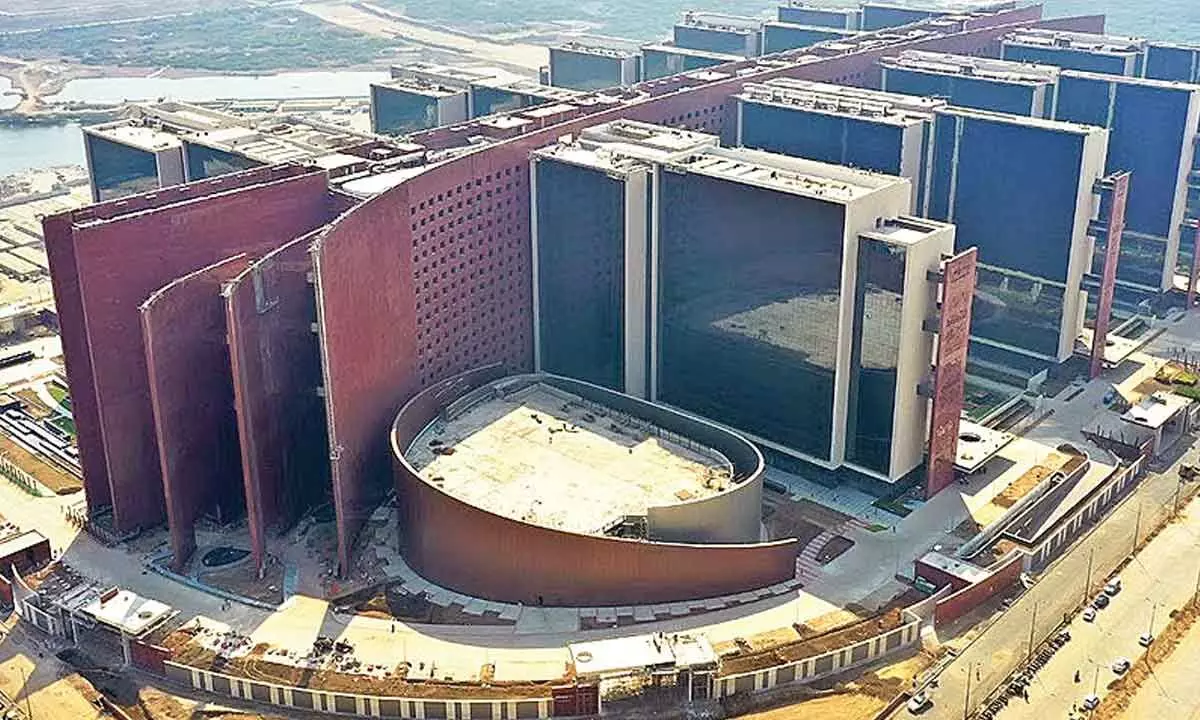Surat’s transformation from diamond capital to urban renewal powerhouse
image for illustrative purpose

Surat, a city historically celebrated as a hub for textile and diamond trading in Southern Gujarat, is on the cusp of a transformative journey.
This city is currently experiencing a rapid evolution in its infrastructure and transportation systems, promising an impact on the lives of its citizens and the regional real estate sector.
The government's focus has shifted to ambitious projects, poised to redefine Surat's urban landscape. Key among these are the multimodal transport hub at the railway station, the innovative city initiative, the eagerly awaited metro rail project, and the Tapi riverfront development.
These infrastructure upgrades are expected to catalyze the growth of the real estate market across Surat, ushering in a new era of urban prosperity. A recent highlight was the inauguration of the Surat Diamond Bourse. Prime Minister Narendra Modi, at the ceremony, announced the creation of 150,000 new jobs, emphasizing the bourse's role as a vital centre for artisans and businessmen.
Renowned for processing 90 per cent of the world's rough diamonds, Surat's diamond bourse is set to bolster the city's ambition to become the global diamond capital. In another significant development, the long-awaited conventional barrage project over the Tapi River near Rundh-Bhatha has finally received the green light from the Coastal Regulation Zone (CRZ).
This Rs 706-crore project, managed by the Surat Municipal Corporation (SMC), aims to establish a conventional barrage and an adjoining flyover bridge, creating a substantial freshwater reservoir. This initiative will enhance the water supply to Surat and support industries along the Tapi River in the Hazira area, aligning with regional water resource management strategies.
The Surat Metro project, conceptualized five years ago, is another landmark venture. Recently approved by the Central government, this two-phase rapid transit system will feature routes from Sarthana Varcha to Dream City and from Bhesan depot to Saroli.
With an estimated cost of around Rs 12,000 crore, the Surat Metro is expected to connect remote areas of the city, significantly reducing travel time. Furthermore, the Mumbai-Ahmedabad High-Speed Rail Corridor (MAHSR), India's first high-speed rail line, is set to be a game-changer. Although still under construction, this project, with an estimated cost of Rs 1,10,000 crore, will include a stretch through Gujarat expected to be operational by 2027, following the opening of the Surat to Bilimora section in 2026.
The implications of these infrastructural advancements for Surat's real estate market are profound. Infrastructure development facilitates commercial growth and stimulates the expansion of ancillary industries and warehouses.
It enlarges the market size, opening new avenues for trade and business, elevating Surat's status as a key player in India's urban development narrative. As Surat strides into 2024, these infrastructure projects begin a transformative chapter in the city’s history, promising a more connected future for its residents and businesses.

